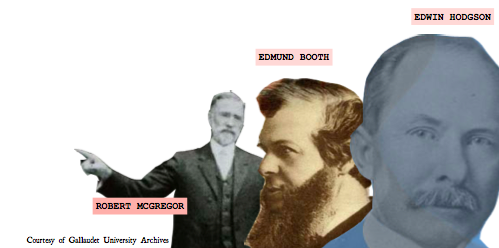This research started in 2009 when I was taking a Deaf History course under the tutelage of Dr. Brian Greenwald. One of our primary focuses was on the Deaf History in America in 1700s-1900s and the eugenics movement that grew during Darwin's discoveries (thanks to his cousin, Francis Galton), and died with Adolf Hitler's attempt to genocide half of Europe.
I was fascinated and yet, horrified, at the concept of eugenics and how a group of people thought it was for the betterment of the human race to proceed with selective breeding to keep what they found desirable and try to "weed" out the undesirables. Deaf people found themselves considered undesirable by eugenicists, and one of the issues that was raised - marriages between Deaf persons. Eugenics sought to ban marriages, as far as to make it into legislature, with the misled belief and notion that they would be eliminating the Deaf gene. This whole concept is complicated: what is really undesirable? Does "disability" prevent the human race from progression? What is considered a successful progress? As history shows, many different disabled individuals have gone on to create great inventions. (Just as an example: Thomas Edison, who was deaf, invented the light bulb.) Still, it doesn't take an inventor of a light bulb to defend - it is the point of diversity and how more diversified the human race is - the more discoveries we make.
Back in the very early 1900s, when eugenics was gaining movement, people viewed America as a brand new country and many ideals went into the mix - which supported the eugenic ideology - the meaning and definition of citizenship. What does it take to be a good American citizen?
Well, now we go to this research I had on National Association of the Deaf and the Eugenics movement.


